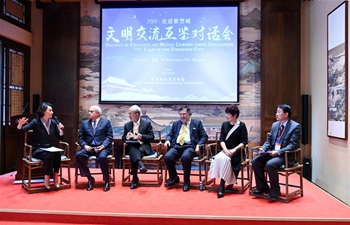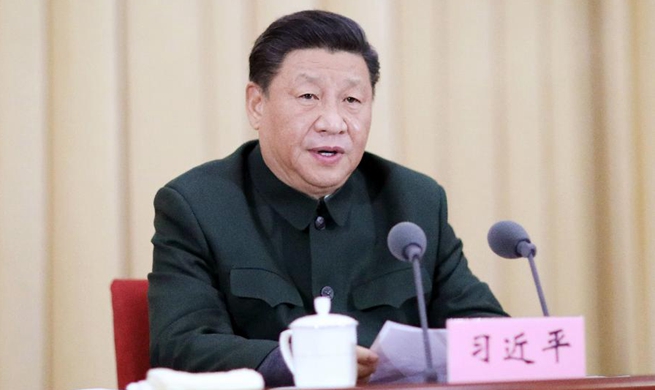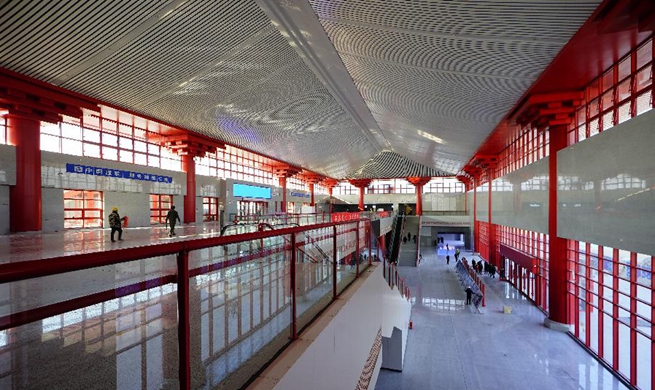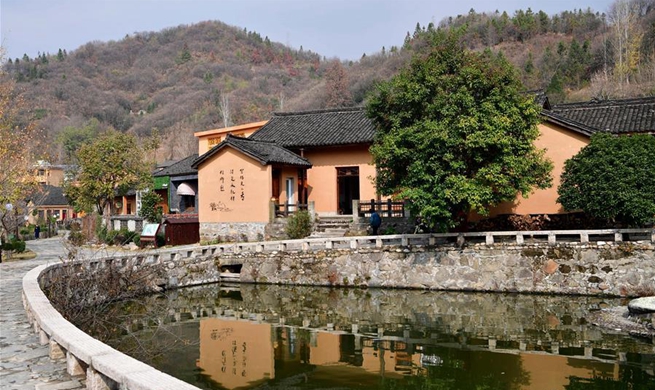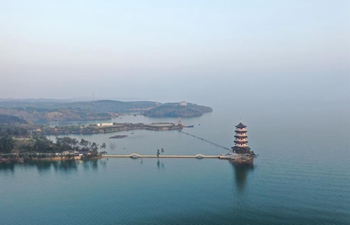XINING, Nov. 29 (Xinhua) -- A severe snowstorm swept through Madoi County in northwest China's Qinghai Province earlier this year, endangering the lives of many wild animals in a natural reserve.
Despite freezing cold and disrupted transportation, Gan Xuebin, an official with the reserve, worked with his colleagues for over 40 consecutive days to deliver 300 tonnes of forage to the starving animals.
For over three decades, rescue missions like this had been commonplace for Gan, who has dedicated himself to the protection of the eco-environment and wildlife in Sanjiangyuan, home to the headwaters of the Yangtze, Yellow and Lancang rivers and many rare wildlife species. The region has been dubbed "Asia's water tower."
China is setting up a national park system and has piloted 10 national parks across the country to protect the natural environment and endangered species, with Sanjiangyuan National Park being the first. Under construction since 2016, the park is set to open in 2020.
According to a survey conducted last year, there are about 9.96 million hectares of grasslands, 2.15 million hectares of wetland and 299,000 hectares of forest in the park. Its average amount of water resources is estimated at 8.4 billion cubic meters.
"A beautiful Sanjiangyuan is our gift to the world," said Gan, deputy Party chief of the management committee of the Yellow River section of the park, adding that the wetland in Sanjiangyuan has expanded and the number of lakes increased.
Intensified conservation efforts have also led to a significant improvement in forest resources in the region.
In Makehe Forest Farm, the largest forest in the region, the forest coverage rate increased from 52.6 percent in 2001 to 69.58 percent in 2014, according to Xue Changfu, head of the Makehe Forest Bureau.
With the construction of China's first national park, Qinghai is striving to achieve harmony between ecology and human development, as well as synergy between ecological carrying capacity and human productivity development, said Qinghai governor Liu Ning.
"We will make greater contributions to the building of a beautiful China and the development of the world's ecological civilization," said Liu.







